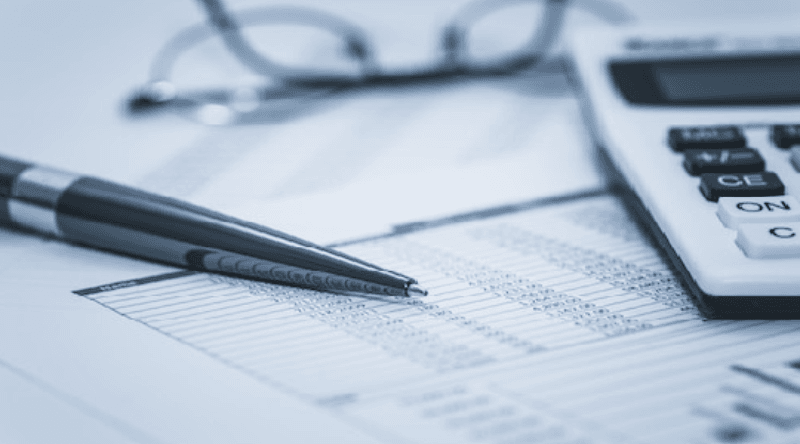
Budgeting is a critical tool for long-term financial success. However, creating an effective one and sticking to it can be a challenge for many people. In this article we will explore the key steps to creating an effective budget and some strategies for sticking to it over the long term.
Introduction:
An effective budget is a key tool for managing money well and achieving long-term financial goals. It is important to know how to make a budget and, more importantly, how to maintain it over time.
In this article, we're going to discuss some key steps to making an effective budget and some strategies for sticking to it over the long term. We'll cover everything from how to set clear goals to how to control your spending and reduce your debt.
With a little effort and commitment, you can make an effective budget that will help you reach your financial goals and have a smoother, more secure life.
What is a budget?
A budget is a financial tool that allows the control and planning of the income and expenses of a person or company for a certain period of time. The main purpose of a budget is to help make informed decisions about how to manage money effectively and achieve long-term financial goals.
To budget effectively, it is important to consider all income and expenses, organized by category. In this way, you can identify areas where you are overspending and make adjustments to maximize income and minimize expenses.
Maintaining a long-term budget requires discipline and commitment. It is necessary to review it regularly and make adjustments as needed to ensure that you are meeting your financial goals. In addition, it is critical to take into account any changes in personal financial circumstances or the job market that may affect the budget.
Why is it important to have an effective budget?
An effective budget is important for several reasons:
- It helps you get control of your finances and avoid unnecessary spending.
- You can create realistic financial goals and work toward them.
- It allows you to save money for emergencies or unforeseen events.
- It helps you avoid debts that are difficult to pay.
- It gives you a good idea of how much you can spend in different areas, such as home, food, entertainment, etc.
In short, having an effective budget allows you to manage your finances well and make smart financial decisions, which in the long run can lead to a more stable and secure financial life.
Steps to make an effective budget:
- 1. Analyze your monthly income and expenses 2.
- 2. Set your financial goals
- 3. Create a savings plan
- 4. Prioritize your expenses
- 5. Look for ways to reduce your expenses
- 6. Regularly monitor your budget and make adjustments as needed.
1. Identify your income and expenses:
The first thing you should do is identify your monthly income and expenses. To do this, you can use a paper log or a budgeting application. Write down the amount of your monthly income, including your salary, additional income and any financial aid you receive.
Next, list your fixed monthly expenses, such as rent or mortgage, utilities, insurance, loans and other recurring expenses. Be sure to include any annual payments such as taxes or school tuition divided by 12 to determine your monthly cost.
Finally, list variable expenses such as food, transportation, entertainment and other expenses that may vary by month. Try to be as accurate as possible so you have a clear idea of how much money you need each month.
2. Organize your expenses by categories:
Once you have recorded all your income and expenses, it is important to organize them into categories to get a better picture of where you are spending your money and to be able to identify areas where you can reduce expenses.
Some common expense categories are:
- Housing (rent, mortgage, utilities).
- Transportation (gas, vehicle maintenance, public transportation)
- Food (meals out, grocery shopping)
- Leisure and entertainment (movies, concerts, travel)
- Clothing and accessories
- Health and personal care
- Debt payments
You can create your own categories according to your needs and lifestyle. The important thing is to be consistent in the way you organize your spending so you can effectively track your budget.
3. Establish short- and long-term financial objectives:
For a budget to be effective and sustainable over the long term, it is important to set clear and achievable financial goals for both the short and long term. Financial goals can be varied, such as saving for a trip, for the purchase of a house or for children's education.
It is important to keep in mind that financial goals should be realistic and adapted to the economic possibilities of each person. In other words, one should not aspire to save an exorbitant amount if it is not possible to do so without jeopardizing one's financial balance.
Once the financial objectives have been established, it is important to constantly monitor them to ensure that progress is being made towards them. To do this, you can use tools such as expense tracking applications or keep a manual record of income and expenses.
When financial goals are achieved, it is important to celebrate and reward yourself for your efforts. This can serve as motivation to continue with financial discipline and set new goals.
4. Establish an action plan:
Once you have identified your expenses and established a realistic budget, it is important to establish an action plan to stay on track throughout the year.
This may include:
- Regularly reviewing your budget and adjusting it as needed.
- Consider ways to reduce expenses, such as renegotiating contracts or canceling unnecessary subscriptions.
- Setting short- and long-term financial goals, such as saving for a vacation or buying a home.
- Keep a detailed record of your expenses and income to identify areas where you can improve.
- Prioritize your spending to ensure you are allocating funds to what is most important to you.
By staying committed to your action plan, you can achieve long-term financial stability and reach your personal financial goals.
How to maintain a long-term budget:
Once you've established an effective budget, it's crucial to stick with it over the long term to achieve your long-term financial goals. Here are some tips to help you maintain your budget:
- Review your budget periodically: Review your budget every month or every three months to make sure it remains effective and adjust as needed.
- Be realistic: Be sure to set realistic financial goals and adjust your lifestyle to fit them.
- Monitor your spending: Keep track of all your spending and regularly check to see if you are sticking to your budget. Use online tracking tools or mobile apps to monitor your daily expenses.
- Save for emergencies: Include an emergency fund in your budget to be prepared in case of an unexpected financial emergency.
- Stay motivated: Remember why you set up a budget and how it can help you achieve your long-term financial goals. Create incentives to encourage you to keep saving.
Maintaining an effective long-term budget requires dedication and discipline, but can be beneficial in ensuring long-term financial stability and financial success.
1. Review and adjust your expenses monthly:
One of the keys to maintaining an effective budget is to review and adjust your spending monthly. This will help you know if you are spending more than you should in any category and identify areas where you can cut back.
To do this, it is important to keep a detailed record of your income and expenses. You can use a spreadsheet or an application to record every expense you make and classify it into categories such as food, transportation, housing, entertainment, etc.
Once you have a detailed record of your expenses, you can identify areas where you are spending more than necessary and take steps to reduce those expenses. For example, if you find that you are spending too much on eating out, you can start cooking more at home or look for more economical options.
Remember that adjusting your monthly expenses doesn't mean giving up all the things you enjoy. It's simply about finding a balance between your income and your expenses so you can achieve your long-term financial goals.
2. Save for emergencies and contingencies:
It's important to have an emergency fund for any unforeseen events that may arise, such as an illness or an unexpected expense at home. To start saving, review your expenses and reduce those that are not essential. Save at least 10% of your monthly income and place it in a separate account, outside of your regular checking account.
It is recommended that you accumulate enough money in your emergency fund to cover your expenses for at least three months. If you find yourself in a difficult financial situation, you can temporarily reduce your contribution to other savings goals in favor of your emergency fund.
Don't get discouraged if you make mistakes:
It is normal to make mistakes when creating and maintaining a budget. The important thing is not to get discouraged and move forward, learning from your mistakes so you don't make them again in the future. It is always possible to make adjustments and changes to the budget to adapt it to changing needs and circumstances. Also, remember that the goal is not to have a perfect budget, but an effective one that will allow you to reach your long-term financial goals.
Conclusion:
In summary, effective budgeting is critical to maintaining good long-term financial health. To achieve this, you need to consider income and expenses, set short- and long-term priorities and goals, and maintain consistent discipline in following your budget.
In addition, it is important not to lose sight of flexibility and the ability to adapt to unforeseen changes in personal or family finances. With a well-structured budget and a responsible attitude, you can achieve a sustainable financial balance and improve your quality of life.





